The Call of Cthulhu pen-and-paper RPG from Chaosium is an incredibly popular tabletop game (TTRPG), and the whole Cthulhu mythos has weaved its way into everyday life and reference. Call of Cthulhu from Focus Home Interactive and Cyanide Studio is the official video-game of said TTRPG, though don’t go into this expecting the depth and breadth of a traditional roleplaying game. Instead, Call of Cthulhu is a more narrative focused title with branching elements depending on player choice.
You take on the role of Private Investigator Edward Piece in 1924. Faced with the possibility of losing your investigator’s licence, you set out to investigate the deaths of a family on the isle of Darkwater, just off the shores of Boston. What follows is a narrative packed full of red-herrings, paranoia, and an atmosphere so tense you’ll need a massage after just playing the game.
Call of Cthulhu is split into chapters with each one giving you an overall objective. Most often, you can approach this goal in a number of ways as suits your preferred style. Talking to the inhabitants of Darkwater and using your persuasive talents is certainly an option, as are picking locks and poking your nose into any nook and cranny you can find. In order to be successful though, you need to make sure your approach matches up with how you develop your character.
The game has a skill improvement sub-system where you can spend the character points you unlock from discoveries, and completing objectives. These skills determine your success in conversations, physical endeavours, and in locating hidden clues. While this may sound like a management chore, this mechanic is incredibly streamlined to the extent you may actually forget it is even there at times.
If you are expecting a full depth iteration of the TTRPG, this is not it. Certainly, how you distribute your character points will determine what approaches will have results for you in game, but you are always working toward the same end-goal regardless. Call of Cthulhu wants you to see what it has next, and this sense of funnelling players to an end can sometimes feel a little reductive.
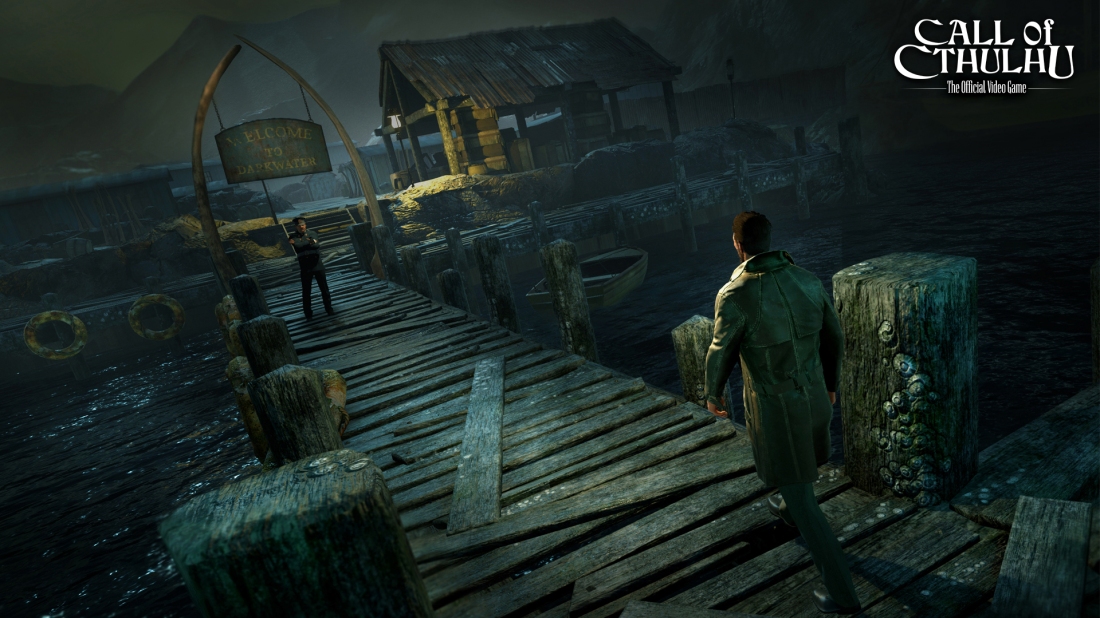
Thankfully, the actual narrative here is wonderfully Lovecraftian. I’ll admit that it had me constantly re-evaluating what I thought was going on, and which characters I could trust. The feeling of doubt that Call of Cthulhu generates is remarkable, and this owes a lot to the game’s pace.
Most chapters present you with a slice of one of Darkwater’s locales open for you to explore and investigate. Moving around these areas, talking to the characters you meet, and picking up the clues scattered around is rarely presented to you with any urgency. This allows room for those thoughts and doubts to creep up from the recesses of your mind, and poke into your consciousness.
When the pace is lifted, and you have a real need for speed, Call of Cthulhu legitimately causes a feeling of panic. These moments are few enough, and have enough breathing room from each other, that they become impactful. This patience from the developers can be seen in their handling of the otherworldly too.
There are also several very admirable moments in Call of Cthulhu where you can drastically shift the story you will get. Some of these do not come when you expect them, and the moment of realisation that you had a choice where you thought there were none is sickeningly brilliant. On that note, do not look at the trophies before playing through the entire game – major spoilers await you there.
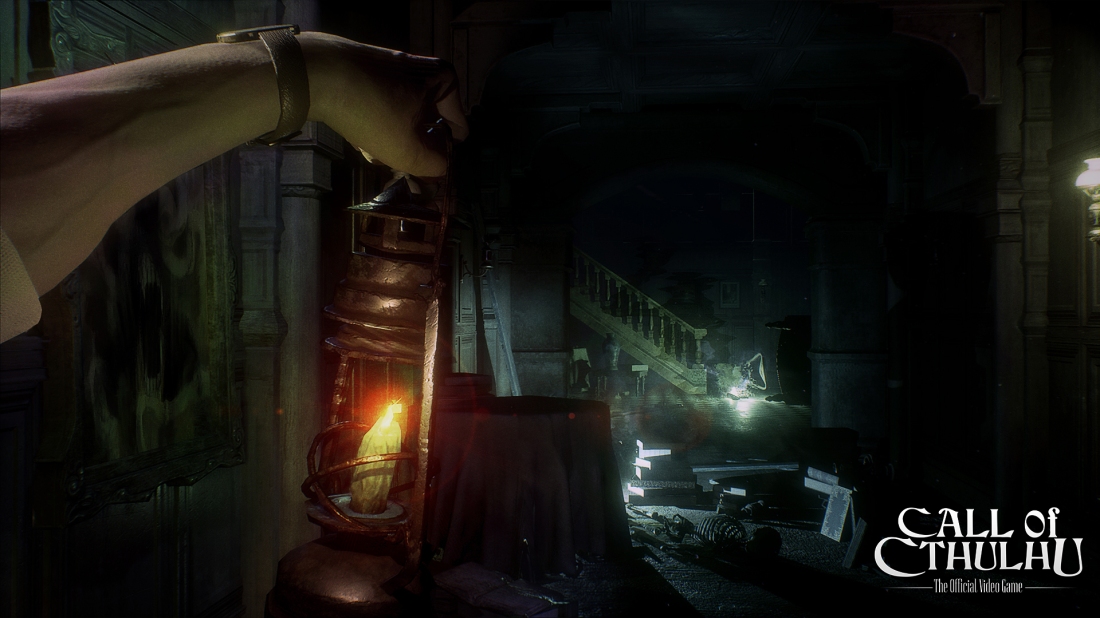
Many previous Cthulhu titles have been too eager to throw abyssal horrors in your face. Call of Cthulhu instead uses the threat of them, and to much more effect. When you do meet abhorrent evil creatures, they are suitably destructive and dangerous. Call of Cthulhu‘s story is much more about the damage done to the people of Darkwater.
This being considered, it is odd that so few of the characters have any proper development. The revelation of who is and isn’t a part of the dark cult present in the game definitely causes some surprises. However, there are a larger number of characters who seem ripe for more growth in the story but get short-shrift when the narrative moves along. Indeed, some characters simply seem to disappear.
We are given hints towards the past of main character Edward Pierce, though this past has little relevance to Call of Cthulhu‘s story. While it may be important to leave Edward blank to a certain extent, so that players can build ‘their’ Edward, it definitely felt like an opportunity missed rather than not taken.
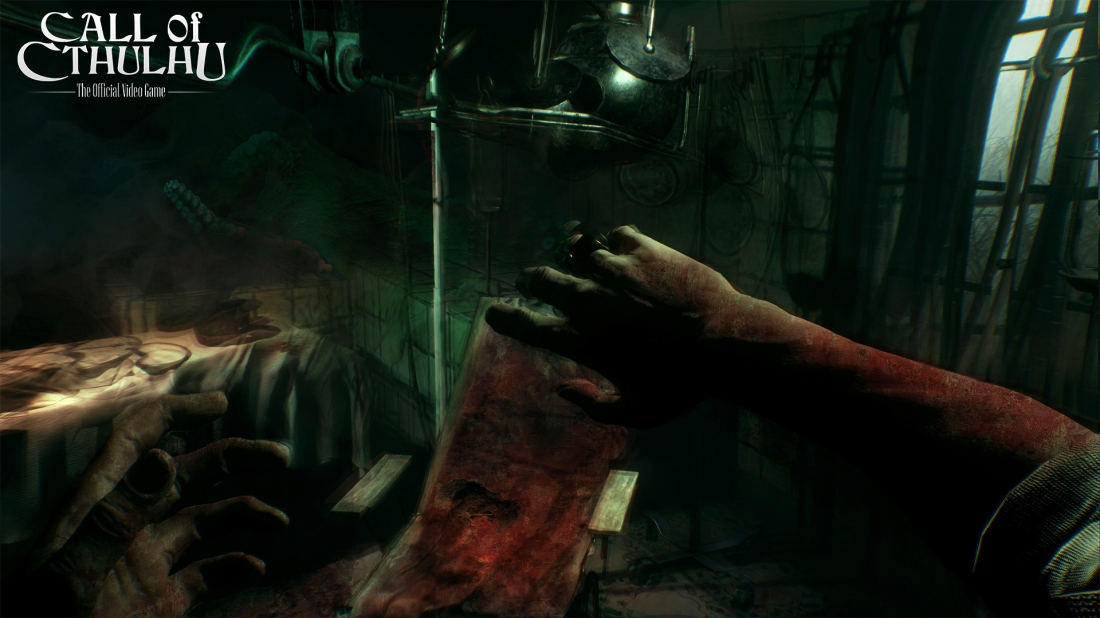
No Cthulhu mythos game is worth its salt if it doesn’t play around with the effects of sanity, and Call of Cthulhu happily leans into this key element of the overall world. Seeing unspeakable horrors, or interacting with the supernatural, leaves Edward with sanity-bending memories. If this happens enough, you’ll start to see the effects around you.
Characters’ appearances change, the environment twists and shifts, dialogue options vary, and the endings available to you in the finale are altered by your sanity. Some of these moments are forced on you, some are clearly signposted, and some come as natural surprises. There is a certain realistic feeling to the way sanity is handled in Call of Cthulhu. It isn’t something shoved down your throat, it’s given the chance to subtly just sit in the back of your brain.
The persistently eery music lurking in the background helps the darkness to wash over you. There’s an uncomfortable, uncanny element to the soundtrack which never lets you get at ease even when the visuals are inviting you to do so. The waves of synchronicity and dissonance between sound and graphics work beautifully in the world of Call of Cthulhu.
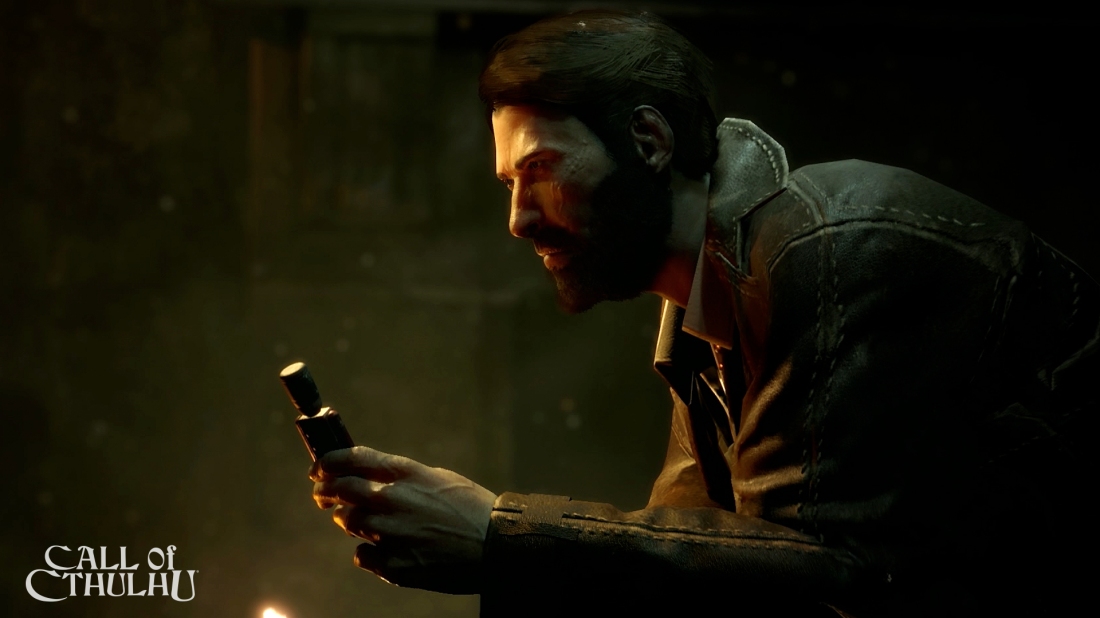
So, who should pick up Call of Cthulhu? Anybody interested in psychological horror, tales of paranoia and tension, the Cthulhu mythos, or intriguing narratives should definitely check out Call of Cthulhu. While this is not a direct translation of the now classic pen-and-paper RPG, it does a great job of encapsulating the claustrophobic feeling of being surrounded by unknown danger. The RPG elements change how you play the game without becoming a statistical balancing act.
At roughly 15 hours long, give or take, this is a fairly tight experience designed to unsettle you but draw you further in at the same time. It’s safe to say that Focus Home Interactive and Cyanide Studio have succeeded in this aim. Ph’nglui mglw’nafh Cthulhu R’lyeh wgah’nagl fhtagn.
Call of Cthulhu is available from October 30th on PS4, Xbox One, and PC. You can pick up a copy from Amazon here.
[GameOrNought was provided with a copy of Call of Cthulhu for review purposes.]

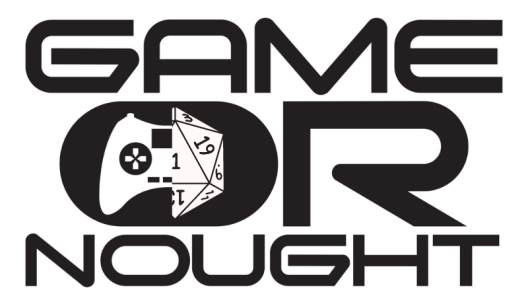

3 thoughts on “Will You Answer the Call of Cthulhu? – Call of Cthulhu Review”